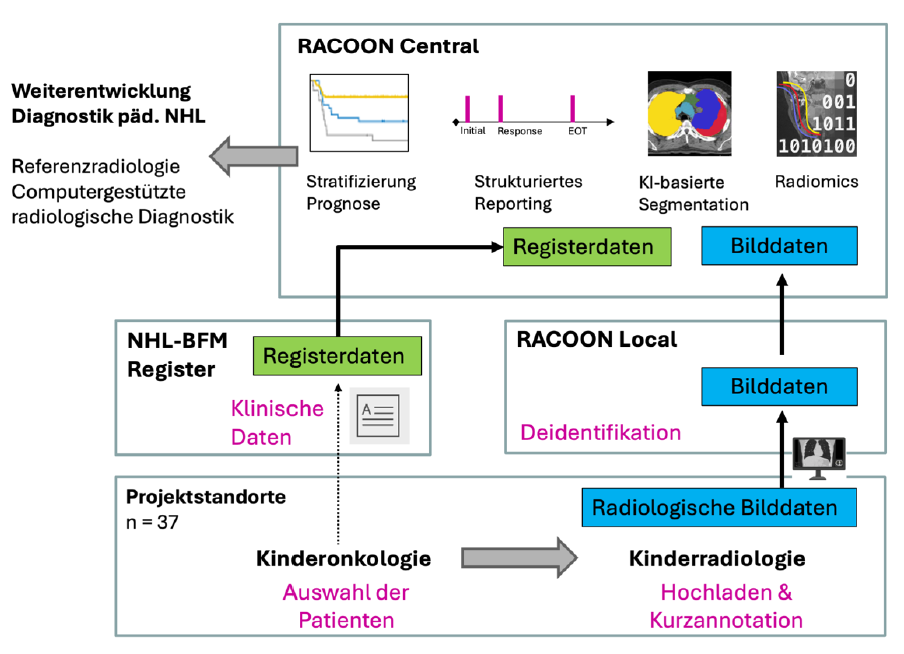In RACOON-RESCUE, existing image data will be analysed in a structured manner in order to improve the staging of NHL, to better assess the vitality of residual structures under therapy and to identify and evaluate new image-based biomarkers. The project is based on image data already collected as part of routine clinical practice and the structured data basis of the NHL-BFM registry, which has been collecting clinical data on all paediatric patients with NHL in Germany since 2012.
Measurements are taken using the image data sets, radiological findings are subsequently collected and recorded in a structured form. Methods of image data analysis ("radiomics") and Artificial Intelligence (AI), including automated segmentation procedures, are used for this purpose. Based on these data sets, the stage is reclassified, the predictive value of the image parameters for the course of the disease is analysed and the image data is correlated with other clinical parameters. The parameters and models identified as relevant in this way can be made available via the RACOON infrastructure for future research projects and the further development of AI-supported diagnostic procedures. The project thus aims to create the prerequisites for establishing a structured reference radiological assessment of paediatric NHL and prospectively using new image-based biomarkers for all children and adolescents with NHL. In future, this could allow radiological diagnostics to be used in a more targeted manner, better classify previously unclear findings and reduce the use of invasive examination procedures.




